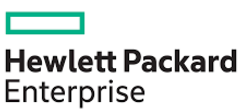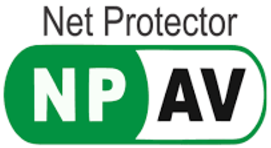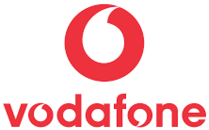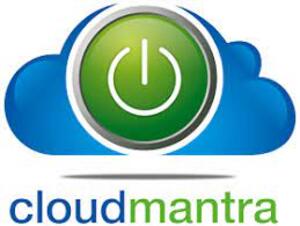About the Course
“Our goal with Windows Server 2019 is to support customers in their hybrid cloud strategy, to help them innovate faster, and more securely, while meeting their regulatory and compliance needs.”
― Erin Chapple, Corporate Vice President of Windows Server at Microsoft
Today many businesses across the word rely on Microsoft Technology. There is always a high demand for Microsoft Certified System Engineers with knowledge of Microsoft Servers. MCSE / MCSA Training Program equips you with the knowledge and skills to become certified in Microsoft technologies and systems. You will learn how to Install, Configure, Manage, Troubleshoot Microsoft Servers and get the hands-on experience to work on multiple Microsoft technologies. Become an expert and learn to implement, manage, create, deploy, and troubleshoot Microsoft systems, including Active Directory, DNS, NTFS Permissions, Group Policy, Site Subnets, Replication, Child Domain, Forest, Trusts, DFS, DHCP, FTP, IIS, Failover Cluster, and more.
MCSA/ MCSE Training is Designed for IT professionals to enable them to build solution both on-premises and in the cloud, Learning Microsoft Server course opens doors to many new opportunities and benefits. Start today and develop real-world skills for highly scalable and fault-tolerant designs.
> Eligibility: 10+2
> Duration: 2 Months
> Enrollment Validity: 3 Months
What You Will Learn
> Types of Windows Server Operating System
> Domain Environment, Active Directory Service, DNS Service
> Creation of a Domain Controller and Users and Group
> NTFS Permissions, ABE, FSRM and Shadow Copies
> Group Policy, Password Policy, Account Lock Policy
> Delegation of User Management and Creation of OU
> ADC, RODC, Site and Subnet and replications
> FSMO Roles, Partition in Active Directory Database
> Multi-Domain and Multi-Forest Structure
> Importance of Groups and Global Catalog
> Recycle Bin and Backup of AD, Configure DFS, DHCP
> Webserver, RAID and Other Virtualization Technologies
> File Server Cluster, Failover of Cluster, Certificate Authority Server
Microsoft Windows Server Course Content - Subjects
- What is Server
- Client and Server Operating System
- What is Workgroup and Domain
- Creating a Workgroup Environment
- Creating a Domain Environment
- Types of Role in Server
- Creating Server
- What is Server GUI and Server Core
- Understanding Active Directory (AD) Service
- Understanding Domain Name System (DNS) Service
- Checking the Port Numbers related to Service
- Understanding of Kerberos and LDAP
- Troubleshooting using Ping and Telnet
- Installing Active Directory (AD) Service in Server
- Creation of Domain Controller (DC)
- Joining a PC to Domain Environment
- Checking Health of Active Directory Service (AD)
- Creation of Users & Group in Active Directory (AD)
- Adding Users in Group in Active Directory (AD)
- Checking Disabled User
- Enterprise Admin and Domain Admin Group
- NTFS Permission (List, Read, Execute, Write, Modify, Full Control)
- Difference between Share and Security Permission
- Understanding Explicit & Inherited Permission
- Configuring Access Based Enumeration (ABE)
- NTFS Permission Reporter Tools
- Configuring Shadow Copies
- Installation of FSRM (File Server Resource Manager)
- Applying Soft & Hard Quota on Folder
- Applying File Screening on Folder
- Event ID related to Quota and File Screening
- Checking logs in Event Viewer
- Creation of Hidden Share Folder
- Need of Group Policy & How Group Policy Works
- User Policy & Computer Policy
- Default Domain Policy
- How Group Policy is refresh on Clients and Domain Controller
- Group Policy Order and Precedence
- Configuring Recycle Bin Policy & Wallpaper Policy
- Configuring Credential Manager Block Policy
- Setting up Screen Saver Policy
- Benefits of Organization Unit(OU) & Creation of OU
- Implement Command Prompt Block Policy
- Blocking Inheritance & Enforce Policy
- Software Installation using Group Policy
- Group Policy Backup & Restore
- Prevent Policy Application using WMI Filter
- Link and Unlink Group Policy
- Domain Password Policy & Fine Grain Password Policy
- Understand Password Age, Password Length, History & Complexity
- Account Lock Policy and Account Lock Troubleshooting
- Delegate access to User/Group for User Management
- Performing Mapped Drive using Group Policy
- Control Panel Block Policy
- Group Policy Troubleshooting steps
- Need of Additional Domain Controller (ADC)
- Creation of Additional Domain Controller (ADC)
- Understanding Replication
- Multi-Master Replication Between DC & ADC
- Understanding Read Only Domain Controller (RODC)
- Checking ADC when DC is down
- Creation of Site & Subnet
- Understanding of Replication Schedule
- Intra-Site & Inter-Site Replication
- Understanding Bridge Head Server
- Understanding IFM (Install from Media)
- Working of Knowledge Consistency Checker (KCC)
- Selection of Bridgehead Server
- Commands to check the Replication Status
- Importance of Flexible Single Master Operation (FSMO) Roles
- Understanding Forest level and Domain Level Roles
- Deep Dive into the working of each Role
- Perform Transfer of Schema Master, DNM Master
- Perform Transfer of RID, PDC, Infra Master Operations
- Impact on Domain when Role Holder DC is Down
- Perform FSMO Role Seizure
- Active Directory Database Partition
- Understanding of Schema & Configuration Partition
- Understanding of Domain & Application Partition
- Checking Health of Active Directory Using Script
- Need of Child Domain & Creation of Child Domain
- Understanding of Multi-Domain Environments
- Adding New Domain to Existing Forest
- Understanding DNS Delegation & Forwarders
- Understanding of Multi-Forest Environments
- Creation of Trust between 2 Forest
- Type of Trust and Nature of Trust
- Parent-Child Trust and Tree-Root Trust
- Forest–Root Trust and External Trust
- Type of Groups in Active Directory
- Security & Distribution Group
- Global, Domain Local & Universal Group
- Understanding of Global Catalog Server
- Difference Between Child Domain and Tree Domain
- Creation of Stub Zone and Secondary Zone
- Need of DNS & Active Directory Integrated DNS
- Host File, DNS Cache & Type of DNS Zone
- DNS Forwarders, Delegation & Conditional Forwarders
- DNS A record, SRV Record , CNAME Record
- Recovering Active Directory from Disaster
- Implement Active Directory Recycle Bin
- What is Deleted Object Lifetime and Tombstone Lifetime
- System State Backup and Full Back up of Domain Controller
- Installing DFS Role on the Server
- DFS Namespace & Replication
- How SYSVOL Replication Works
- Installing DHCP Role on the Server
- How DHCP Works
- Understanding of APIPA & DORA Process
- Configure Scope, Exclusion, Lease, Reservation in DHCP
- Installing IIS Role on the Server
- Creation of Website
- Performing DNS Round Robin
- Installation of FTP Server
- Accessing FTP Server using File Zilla software
- Need of Redundant Array of Independent Disk (RAID)
- Configure RAID 0 – Stripping , RAID 1 – Mirroring, RAID 5 – Strip Parity
- Understanding RAID 10 – Strip Mirror
- Need of Virtualization Technologies
- Need of Failover Cluster
- Installing Failover Cluster (FOC) Role on the Server
- Creation of SAN & ISCSI Disk
- Perform Failover Cluster
- Difference Between NAS and SAN
- Installing Active Directory Certificate Service (ADCS) Role on the Server
- Creation of Certificate Server
- Enterprise & Standalone CA
- Creation of Domain
- Certificate using CA
- Applying Certificate to the Webserver
Certificate Awarded
MCSA (Microsoft Certified Solutions Associate) is a Microsoft awarded certification program intended for people seeking entry-level jobs in system administration. It also acts as a prerequisite for advanced Microsoft certification courses such as the MCSE (Microsoft Certified Solutions Expert).
Why Should You Join Us?
# Live Projects
# Practical Training
# Personal Attention
# Live Demo Classes
# Part Time Courses
# Free Training on Linux
# Expert Industry Trainers
# Hands-on lab Exercises
# 20+ years of Experience
# On Job Training in MNCs
# Foolproof Career Guidance
# Affordable Competetive Fees
# 100% Placement Track Record
# Centrally Located in Deccan, Pune
# Coaching in English, Marathi and Hindi
# Flexible Regular and Weekend Batches
# Learn from scratch for Beginners to Advanced
# Guidance for International Certification Exams
# Repeat Sessions on request
# Complete Practicals Lab Setup
Career Opportunities
# Windows Administrator
# System Administrator
# Wintel Administrator
# System Engineer
# Data Centre Operator
# IT Support Specialist
# System Analyst
# Network Administrator
# Systems Engineer
# Network Engineer
# Systems Consultant

Placements








































